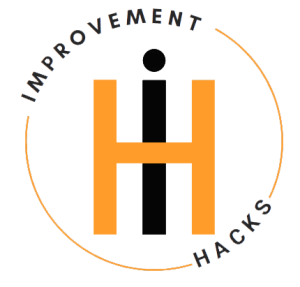Understanding Self Improvement
Self improvement tips often revolve around the idea of making yourself better in a number of different ways.
It’s kind of like updating different parts of your life, such as your habits, how you think, or even the roles you’ve currently got, like being a parent or a friend.
You can look at it as giving yourself a personal upgrade.
Choosing Where to Focus
When you think about making these upgrades, it’s a good idea to choose what to focus your energy on.
Not everything about us can be changed that easily, so it’s a good idea to work on things that you can actually improve on.
This way, you won’t waste your time on stuff that’s too hard to change.
So What Things Can You Improve on?
Thankfully, experts such as Martin Seligman, who is a well-known expert in the psychology field, have identified areas in our lives where we can really make a difference.
Seligman (2009) points out that we can work on improving things like our mood, how we handle stress, or even how optimistic we are.
Here are a few things you can work on:
How you deal with panic
Issues in your love life
Your overall mood
Feelings of depression
Staying positive
Other experts, Sedikides & Hepper (2009), also found that we can improve in areas such as:
Feeling good about ourselves and our life
Building better relationships
Doing well at school or work
6 Self Improvement Tips for Your Development Journey
Now that you know what you can work on, here are some self improvement tips to help you start your journey to becoming a better you.
Remember, it’s about taking small steps to make big changes in how you think, feel, and act.
Let’s get started!
Practice Self-Reflection
Self-reflection is an important part of understanding who we are.
Quite often, how we view ourselves is a lot different from how other people see us (Johnson et al., 2002).
By taking the time to reflect on our actions and thoughts, we can build up a clearer picture of what parts of ourselves we might want to work on.
Exploring Mindfulness
Mindfulness means paying attention to what’s happening to us and around us, moment by moment.
It’s about approaching life with curiosity and accepting things as they are, rather than sitting back and judging them.
Looking at it this way helps us see our thoughts and feelings as temporary, and always changing (Bishop et al., 2004).
Just like self-reflection, practicing mindfulness opens us up to new experiences and opportunities, paving the way to help with our self-improvement.
Developing a Growth Mindset
A growth mindset is all about believing in our ability to improve and develop our skills (Dweck, 2015).
When we trust that we can get better, we become more motivated to put in the effort needed to learn and get ahead.
Cultivating this mindset is a powerful tool in achieving our goals and making improvements in the areas we are looking to enhance.
Recognizing Feelings of Shame
It can be a common experience for a lot of us to pursue self-improvement because of social pressure (Sedikides & Hepper, 2009), outside expectations, or feelings of shame for not being good enough in certain areas.
But, if our main reason for self improvement is just to satisfy others, we are going to find ourselves feeling unfulfilled, even when we finally achieve our goals.
So, it’s important to reflect on your true motivations for self improvement.
Acknowledge any underlying shame you might have, take another look at your goals, and make sure they are in line with your fundamental values.
Building Reappraisal Skills
Reappraisal is a technique for managing our emotions, allowing us to see challenging situations in a more positive light.
This can help to reduce our negative feelings and boost positive ones.
To practice this, think about a tough situation you’re facing and try to view it in a slightly less negative way, for example:
“at least I’ve got a roof over my head “.
Or more positively like, “this is an opportunity to grow and build some character”.
The more you practice it, the more natural this skill will become.
Leveraging Your Strengths
A lot of times when we are thinking about self improvement, our attention seems to focus more on our weaknesses, namely the areas where we don’t perform as well as we’d like to.
However, it can also be just as beneficial to concentrate on our strengths.
By doing this, we can build on the stuff we’re already good at and become even more skilled in those areas.
References
● Bishop, S. R., Lau, M., Shapiro, S., Carlson, L., Anderson, N. D., Carmody, J., … & Devins, G. (2004). Mindfulness: A proposed operational definition. Clinical psychology: Science and practice, 11(3), 230-241.
● Dweck, C. (2015). Carol Dweck revisits the growth mindset. Education Week, 35(5), 20-24.
● Johnson, S. C., Baxter, L. C., Wilder, L. S., Pipe, J. G., Heiserman, J. E., & Prigatano, G. P. (2002). Neural correlates of self‐reflection. Brain, 125(8), 1808-1814.
● Sedikides, C., & Hepper, E. G. (2009). Self‐improvement. Social and Personality Psychology Compass, 3(6), 899-917.
● Seligman, M. E. (2009). What You Can Change… and What You Can’t*: The Complete Guide to Successful Self-Improvement. Vintage.






